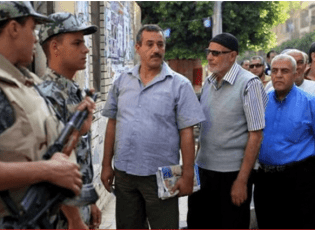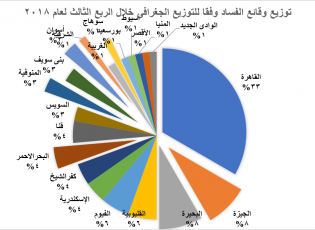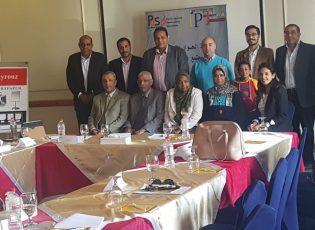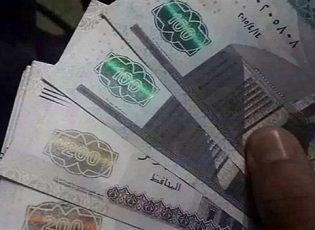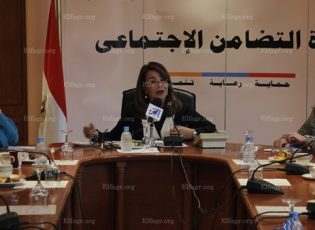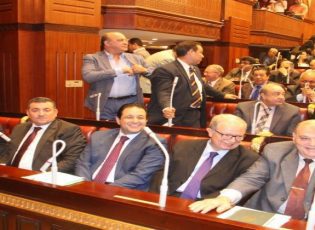Arm News: Muhammad Alaa
Posted on 2017-01-23 18:20:13 GMT
The commission carries out four tasks, namely, crimes of aggression against public funds, crimes of trafficking in the public office, crimes of forgery in official documents, and crimes of illicit gain.
Recently, there has been a noticeable activity of the Administrative Control Authority in Egypt, reinforced by the disclosure of one incident after another to the public opinion, the most famous of which was known in the media as the "Ministry of Agriculture bribery" case in which the former minister, Salah Hilal, was sentenced to 10 years in prison.
This incident comes after several incidents, the most prominent of which was "bribery of the State Council", in which the late Secretary-General and Director of Procurement in the Council were accused, and the issue of trafficking in human organs, in which doctors and university professors were accused.
The remarkable activity of the authority was led by Egyptian President Abdel Fattah El-Sisi to praise it, stressing: “When we said we will face and fight corruption that exists in Egypt, we were serious, and we had to make every effort to confront it.”
First appearing
Al-Sisi mandated the Administrative Control Authority to review projects implemented by the state, in terms of accuracy of implementation, efficiency of production, transparency in the money spent, and publicly announcing the results of its work.
At the end of last December, the head of the Administrative Control Authority, Mohamed Irfan, appeared for the first time during the inauguration of the President of the Republic a project for fish farming, announcing that the review of 1637 projects examined by the authority, including 120 projects scheduled to be opened by Sisi, indicating that the authority had approved 96 projects. Of them, while it postponed the opening of 24 other projects due to observations.
The most prominent issues
On the seventh of last September, the Administrative Control arrested the Minister of Agriculture, Salah Hilal, in Tahrir Square, minutes after he forced his resignation, after he was accused in the case known in the media as "bribery of the Ministry of Agriculture."
In early December, the authority revealed what was described as “the largest network of trafficking in human organs,” in which university professors, doctors, nurses, owners of medical centers, brokers and mediators are accused.
And before the end of the same month, she arrested the Director of Procurement at the State Council (one of the three major courts) in flagrante delicto in a bribery case. Before it included the Secretary-General of the Council, who was declared suicide by the prosecution, based on the forensic report.
A few days ago, the authority was able to seize a former advisor to the Minister of Finance after he received the last million pounds of bribes out of 4 million pounds from the owner of a contracting company, in exchange for manipulating the estimation of the value of the land of a tourist village, which would have wasted 500 million pounds on the state treasury.
History and functions of the authority
The authority reports directly to the prime minister, and, according to its official website, exercises: “All forms of administrative, financial and technical oversight and the control of criminal crimes, and it is entrusted with combating administrative corruption in Egypt.
Administrative Control began as a section of the Administrative Prosecution Authority in 1958, and became an independent, self-contained body in the year 1964, during the reign of the late President, Gamal Abdel Nasser, before the late President Muhammad Anwar Sadat froze its activity in 1980, and it was restored by the former president, Hosni. Mubarak, to life in 1982.
The authority carries out four tasks, namely: crimes of aggression against public funds, crimes of trafficking in public office, crimes of forgery in official documents, and crimes of illicit gain.
Since April 2015, the authority has been chaired by Major General Muhammad Irfan, who obtained a BA in Military Sciences in 1977 and has many experiences in the field of fighting corruption.
Parliamentary interaction
Twenty deputies in Parliament, in interaction with the recently disclosed cases, submitted a request to form a fact-finding committee on what they called “the mafia of corruption in the state’s administrative apparatus and wasting public money.”
In the request, which they delivered to the Speaker of the Council, Ali Abdel-Al, the twenty deputies indicated that “corruption over the course of decades has transformed into a doctrine firmly rooted in the conscience of the state’s administrative apparatus. Who tries to confront him or even approach him ”
51 corruption incidents in a month
A report by the Partners for Transparency Foundation revealed 51 incidents of corruption in Egypt last December, and the Ministry of Supply had the largest share of corruption cases with 10 incidents, while the local sector came second with 9 cases, followed by the agriculture sector with 7 incidents, then health with 5 cases. And the Ministry of Justice with 3 incidents.
Cairo came first with a percentage of 33% of facts, followed by Beheira governorate with a percentage of 11%, then Giza with 101 TP1T, then Menoufia and Qena governorates with 81 TP1T cases each.
While Egypt declares a war on corruption and theft, it faces an economic crisis that has prompted it to borrow from several international parties, including the International Monetary Fund, in light of the rise in commodity prices and the floating of the pound.
In a survey on corruption in the Middle East and North Africa, published in May 2016, Transparency International said: “Egypt recorded the highest corruption rate in the region after Yemen, as half of Egyptians are forced to pay bribes to obtain public services.”
Short link: https://pfort.org/en/?p=1989




